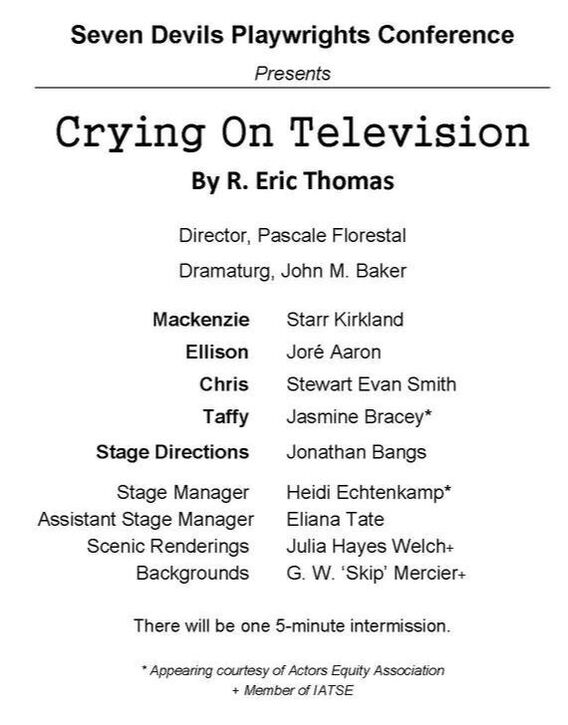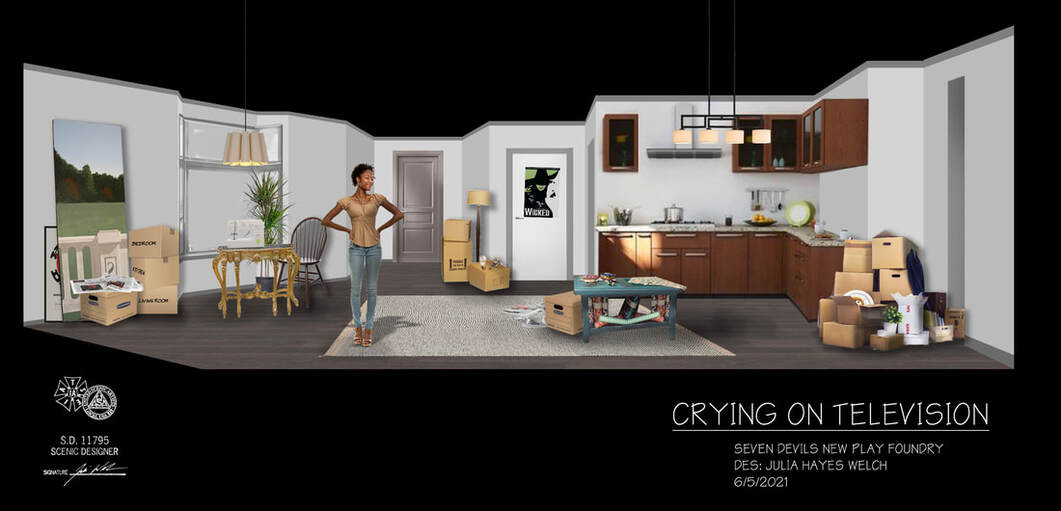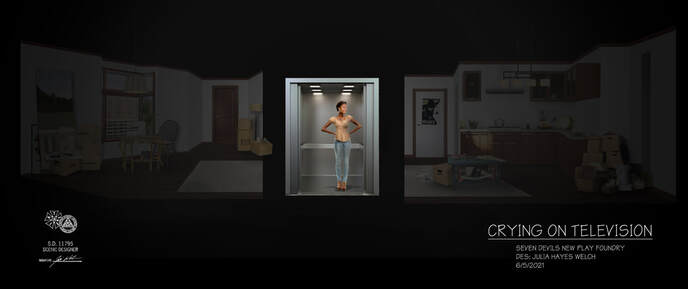SEVEN DEVILS PLAYWRIGHTS CONFERENCE
CRYING ON TELEVISION
by R. Eric Thomas
|
to learn more about all the artists,
visit our 2021 Company Page |
Virtual set designs (above) by Julia Hayes Welch.
|
DISCUSSING THE PLAY - HERE IS HOW WE DO IT!
This year we will be working to translate our usual talkback process into the Zoom format using the “Raise Hand” feature, which we will review at the top of the talkback. When we call on you, we will also allow you to unmute so you can speak.
|
Like all events at the Conference, the post-reading discussion is for the playwright. With that in mind, we ask that the playwright not respond to questions or comments. We do this so the playwright can listen fully, without worrying about having to come up with the right answer or feeling like they need to defend themselves or their choices.
IMPORTANT THINGS TO KEEP IN MIND
SO WHAT DO WE WANT TO TALK ABOUT?
The director and dramaturg will start off our discussion by letting us know a bit more about the work they’ve been doing with the playwright and actors – just to give us a sense of what they’ve been up to, what they’ve been focusing on, and any particular things they’re interested in talking about. Then we’ll open the floor to all of you. PLEASE KNOW: Your participation is much more important than perfect phrasing! We’ve included a few examples of how these guidelines work on the following page, and if you aren’t sure how to express what you want to say, just raise your hand and let us know - we’ll figure it out together. Thank you for participating in the development process! |
HERE ARE A FEW PRACTICE COMMENTS
“I didn’t like it when you said Bob was dressed like a gnat.”
How might we say that differently? “I was confused when Amanda said Bob was dressed like a gnat because I don’t know what a gnat would wear so I wasn’t sure what she was trying to convey.” “I didn’t like your dialogue. It wasn’t real.”
So how might we say it differently? “I didn’t believe a sea lion would know what Pokémon was, and when he started cursing I kept having to ask myself if a sea lion would really use that kind of language in front of a child, so I was distracted.” “I liked the inflatable ducks, they remind me of my mother. What did they mean?”
So how might we say it differently? “I liked the inflatable ducks, they remind me of my mother because she loves anything yellow, but I’m not really sure what they have to do with Bob’s fear of insects. |






